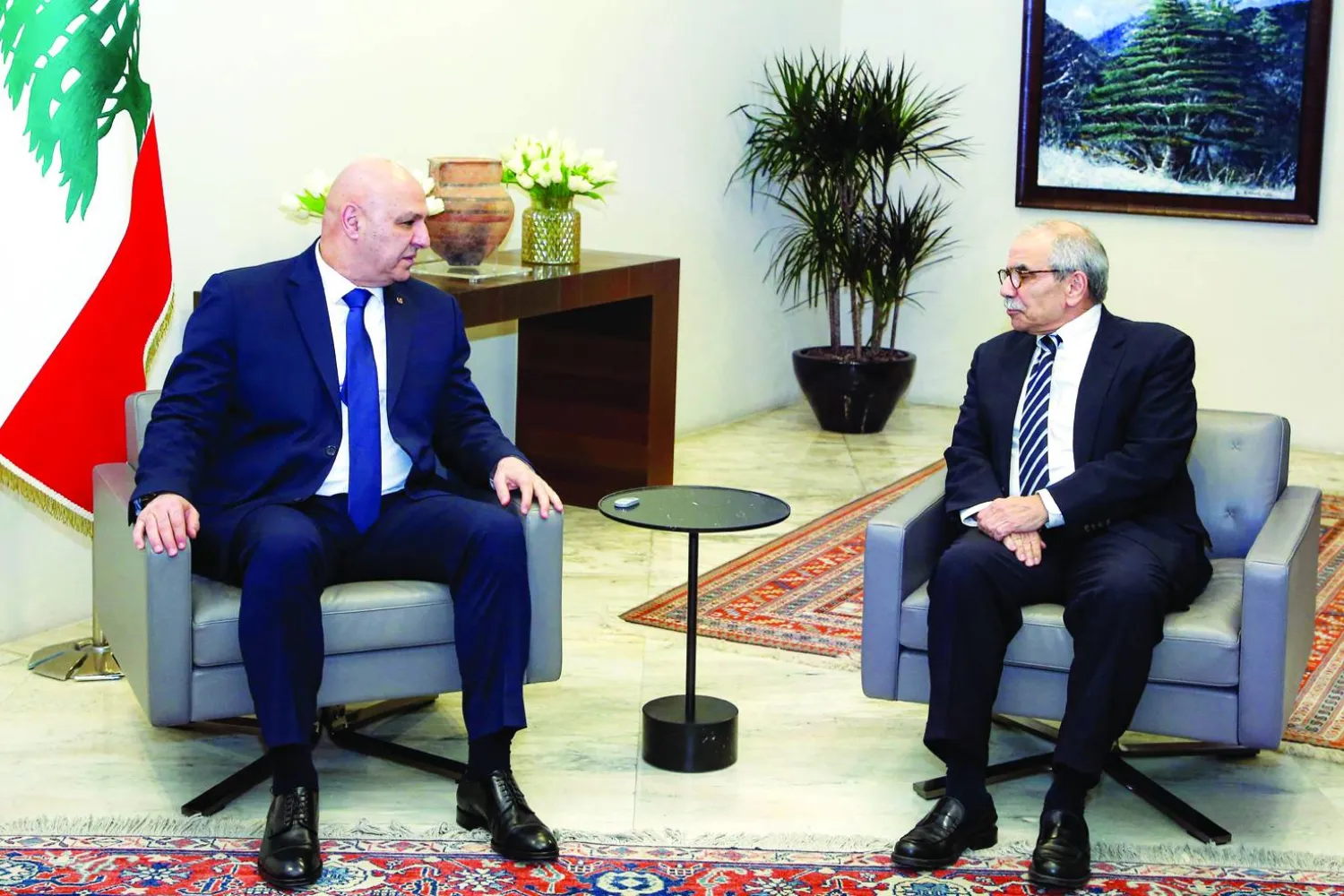Lebanon’s newly elected President Joseph Aoun said on Thursday that the formation of the government must not be delayed because of sectarian and political complexities, urging the parliamentary blocs to ease the formation process.
“We have just begun restoring the trust between the people and the state. We wish to form a new government that meets the aspirations of the people as quickly as possible”, said Aoun on Wednesday.
He added that extending bridges of trust with the Arab and Western worlds is attainable only if sincere intentions for the good of public interest are there.
Aoun emphasized that the swift formation of a new government gives a positive signal to the whole world, while obstructions and delaying the process because of narrow political and sectarian demands does the opposite.
Lawmakers from the Change Bloc, who had a major role in unifying the ranks of the opposition and garner support for naming Judge Nawaf Salam for the premiership, reject demands for sectarian and partisan quotas to ease the formation process.
They say that the mechanism to form a government should strictly adhere to competency.
Recent reports emerged lately that lawmakers of the Change Bloc want to have two or three ministerial seats in the new lineup, but the MPs themselves denied that.
“We don’t want a ministerial share, plus we reject the notion of quotas. We only take the share we want when we rebuild a country that we aspire for, and when competent and ethical ministers are appointed”, MP Paula Yacoubian of the Change Bloc told Asharq al-Awsat.
MP Firas Hamdan, also of the Change Bloc, reiterated what Yacoubian said. He told Asharq Al-Awsat that the Change lawmakers do not want ministerial portfolios or any share in the coming government.
He said the bloc refuses the formation of a government based on sectarian and political quotas, akin to old formation practices. “These have proven to be failed practices”, he said.
In order to swiftly form a government and garner confidence for Salam’s government, Hamdan said that the political blocs must bear responsibility in front of the people and the international community and ease the formation.
Director of the Levant Institute for Strategic Affairs, Dr. Sami Nader, said in remarks to Asharq Al-Awsat that lawmakers of the Change Bloc had a major role in bringing Salam to his post.
“But the question is: will the new regime be one that will bring change, or will it replicate the former rule? If the next scenario is the case, then we can treat the Change Bloc as we treat any other party or political group that gets appeased with ministerial representation. This would be regretful because it would only mean that we went back to the system of quotas”, he stated.
Lebanon: Aoun Says Govt Formation Must Not Be Delayed by Sectarian Demands

This handout picture provided by the press office of the Lebanese presidency shows Lebanon's new President Joseph Aoun (L) meeting with prime minister-designate Nawaf Salam at the presidential palace in Baabda, east of Beirut on January 17, 2025. (Photo by Lebanese Presidency / AFP)

Lebanon: Aoun Says Govt Formation Must Not Be Delayed by Sectarian Demands

This handout picture provided by the press office of the Lebanese presidency shows Lebanon's new President Joseph Aoun (L) meeting with prime minister-designate Nawaf Salam at the presidential palace in Baabda, east of Beirut on January 17, 2025. (Photo by Lebanese Presidency / AFP)
لم تشترك بعد
انشئ حساباً خاصاً بك لتحصل على أخبار مخصصة لك ولتتمتع بخاصية حفظ المقالات وتتلقى نشراتنا البريدية المتنوعة







